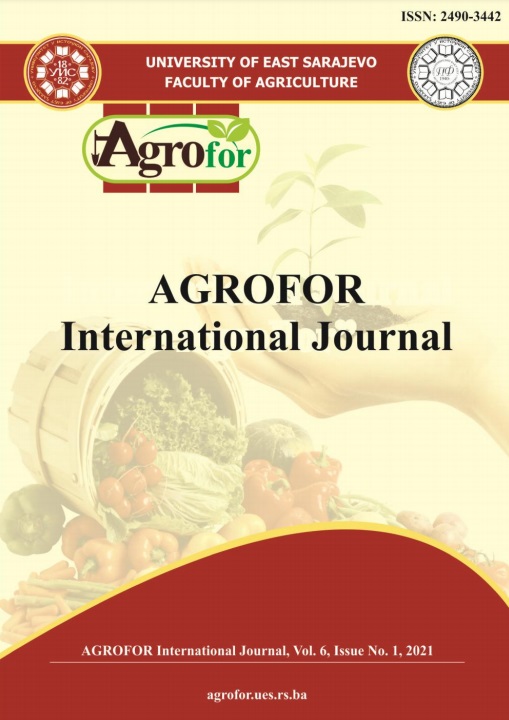HOW DO ADAPTATION OPTIONS TO CLIMATE CHANGE, RISK PREFERENCES AND SOCIAL CAPITAL AFFECT TECHNICAL EFFICIENCY OF SMALL VINEYARD FARMERS IN CENTRAL CHILE?
DOI:
https://doi.org/10.7251/AGRENG2101096IAbstract
Climate change can be seen as a shock that decreases the value of economic
activities and production functions. Therefore, this study estimates technical
efficiency as an integrated approach with risk preferences and social capital for
small vineyard farmers who have adapted to climate change, because empirical
evidence shows the key role of adaptation, risk preferences and social capital
related to technical efficiency on a one-to-one basis, but not as overarching
analysis. This study took place in the O’Higgins and Maule regions of central
Chile, data were collected through a field experiment and an exit survey from
September to December 2016. Specifically, we conducted an artefactual field
experiment to elicit risk preferences from 175 small vineyard farmers; we used the
midpoint method to estimate the Cumulative Prospect Theory (CPT) parameters,
which indicate vineyard farmers are risk averse, sensitive to losses, and tend to
distort probabilities. Then we applied a stochastic frontier analysis on the main
variety area of vineyards. Results showed that the influence of capital (0.55) and
number of vines (0.32) is higher enough; whereas, labor (0.13) and intermediate
inputs (0.11) are also important but relatively low. The scale elasticity is 1.11,
showing a Constant Returns to Scale (CRS). On average, technical efficiency was
0.73, which means that farmers could improve their performance by 27%.
Additionally, results suggest that experience and education positively influence the
technical efficiency, contrary to age, gender, region and density; whereas, access to
extension services and irrigation increases efficiency. Also, general trust and
membership in farmer organizations increases efficiency; and, as we expected, risk
aversion and probability weighting decreases efficiency. In this regard, it is
necessary to design policies and strategies focused on facilitate accessibility to
exchangeable inputs; in the promotion of extension services with greater action
area; facilitate access to irrigation through subsidies and credits; improve trust in programs and networks; develop cooperative enterprises or local and horizontal
organizations to share information and services from farmer to farmer; and also
generate action plans to promote a better risk and loss behavior in order to seize
technological and economic opportunities and not overestimate extreme events.

